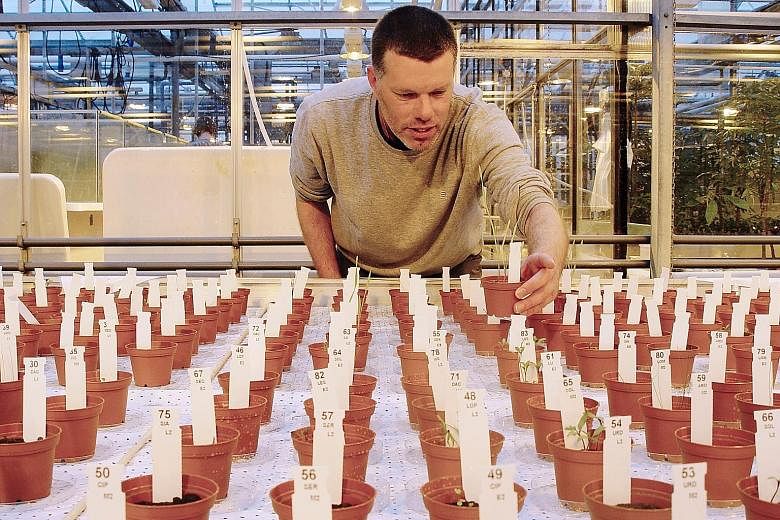THE HAGUE • Dutch scientists said crops of four vegetables and cereals grown on soil similar to that on Mars have been found safe to eat, amid plans for the first manned mission to the planet.
Abundant harvests of radishes, peas, rye and tomatoes all grown on the soil were found to contain "no dangerous levels" of heavy metals, said the team from Wageningen University on Thursday.
"These remarkable results are very promising," said senior ecologist Wieger Wamelink. "We can actually eat the radishes, peas, rye and tomatoes, and I am very curious what they will taste like."
Future Mars settlers will have to take food supplies with them and then plant crops in order to survive.
So using soil developed by Nasa to resemble that of the Red Planet, the university in the Netherlands has been experimenting since 2013 and has managed to raise 10 crops.
There is uncertainty still about their absorbing the high levels of heavy metals such as cadmium, copper and lead present in Mars soil. Further tests are needed on the other six crops, including potatoes, in research being backed by a crowd-funding campaign.
Nasa plans a manned trip to Mars within the next 10 to 15 years or so, and similar projects are being pursued by US billionaire Elon Musk and Dutch company Mars One, tentatively aiming to set up human colonies on the Red Planet.
The Mars One project has backed the Wageningen work and is deciding on the final 40 out of 100 candidates hoping to be its astronauts.
But unlike any Nasa mission, Mars One is a one-way trip: Whoever joins this journey to the foreign world is never, ever coming back to Earth, Fox 5 News reported.
Mars One CEO Bas Landsdorp estimates the project will cost US$7 billion (S$9.5 billion). He plans to pay for it in part by turning the mission into a reality show.
But space expert Neil deGrasse Tyson is sceptical.
"I try not to get in anybody's way who is dreaming big," he told Business Insider after Mars One announced the project in February last year. "But I'm sceptical it can be accomplished on the timescale" given.
AGENCE FRANCE-PRESSE

